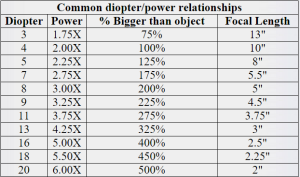ESD Rectangle Magnifying Lamp | RT201ESD
ESD rectangle magnifying lamp is an much needed tool for anyone working with small and precise details especially precision machining, quality inspection or design that requires static proof.
Users can effortlessly see much smaller details, magnifying lamps with lights especially LEDs are very helpful in reducing eye strain and preventing eye tiredness.
ESD Clamp Magnifying Lamp are popular with electronics manufacturers, industrial quality inspection, laboratories and aerospace.
Try these methods to have a better view.
1. Make use you use both eyes while using a magnifying lamp.
2. The lens has to be positioned right to keep your object in focus, with your eyes around 8” to 10” away from the main glass. This method allow you to have the best magnification.
3. For best results, keep your chair height and working surface positioned to maintain good posture. You shouldn’t be leaning away from the lens when viewing the object.
What does ‘Diopter’ mean is when looking at ESD Magnifying Lamp, you’ll come across the term ‘diopter’ instead of times like in the microscope.
a) This refers to the amount of curvature a lens will have. More curvature means a thicker lens, higher magnification and a higher diopter number.
b) To find the magnification level of a lens, simply divide its diopter by 4, and add 1. For example, if you’re looking at a 3-diopter lens, it’s magnification = ¾ + 1… or .75 + 1 = 1.75x.
c) Objects viewed under a 3 diopter lens will appear 175% bigger than usual. A 5-diopter lens = 5/4 + 1… or 1.25 + 1 = 2.25x. Items viewed under a 5 diopter lens will appear 225% bigger than usual.
Field-Of-View:
The field of view is the size of the magnified area that is in focus under the magnifying lens. The higher your magnification, the smaller the field-of-view. For example, if you move the flashlight closer to the wall (stronger light which means stronger magnifying power), the spot of light (field-of-view) will shrink.










































